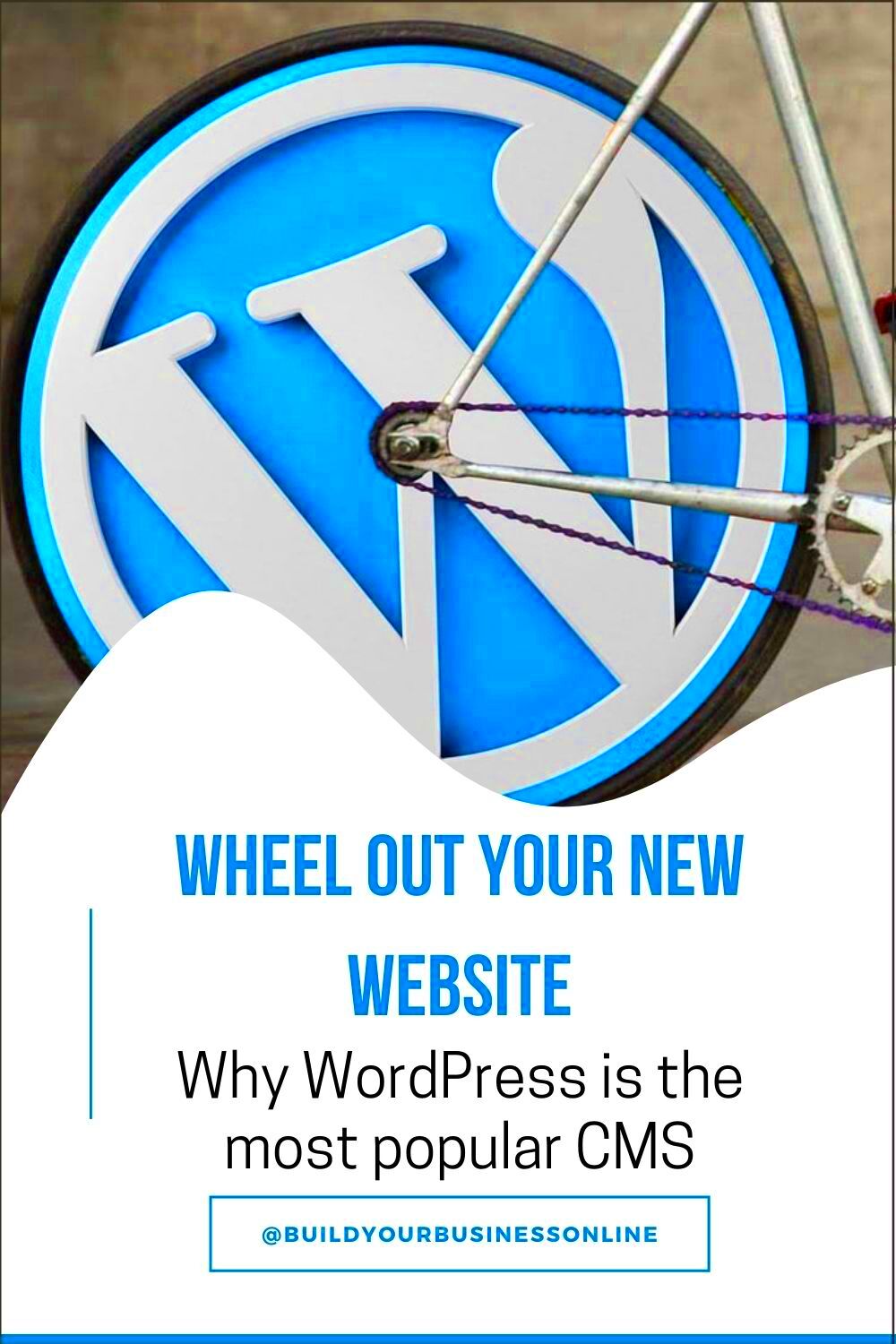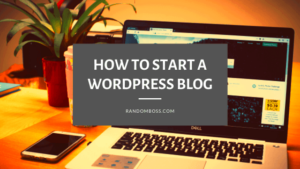WordPress is a powerful content management system (CMS) that has become a go-to platform for building websites. Whether you’re a seasoned web developer or a complete novice, WordPress makes it easy to create and manage a site that meets your needs. With its user-friendly interface, extensive customization options, and robust community support, it’s no wonder that over 40% of the web is powered by
History of WordPress
The story of WordPress begins in 2003. It was created by Matt Mullenweg and Mike Little as a fork of b2/cafelog, a blogging software that was no longer being maintained. The goal was to provide a user-friendly platform for bloggers where they could easily publish their content. Here’s a quick timeline of WordPress’s evolution:
- 2003: The first version, WordPress 0.7, was released. It introduced features like a new admin interface, a built-in dashboard, and the ability to create searchable tags.
- 2004: WordPress 1.0 launched, bringing with it a plugin architecture which allowed users to extend the functionalities of their sites.
- 2005: The introduction of themes allowed users to change the look and layout of their sites without altering the underlying code.
- 2008: WordPress 2.5 improved the admin interface significantly, focusing on usability upgrades such as easier media management.
- 2010: WordPress 3.0 introduced custom post types and taxonomies, paving the way for more complex website structures.
- 2021: WordPress 5.8 was released with the Block Editor, further enhancing the user experience for content creation.
Today, WordPress is not just a blogging platform; it’s a full-fledged CMS that’s used to power all types of websites, from simple blogs to complex e-commerce sites and portfolios. The continuous updates and improvements ensure that it remains relevant in the ever-evolving digital landscape, making it a popular choice for creators around the globe.
Key Features of WordPress
WordPress has become a household name in the world of website creation, and for good reason! Its key features make it incredibly versatile and user-friendly. Let’s take a look at what makes WordPress stand out:
- User-Friendly Interface: One of the biggest advantages of WordPress is its intuitive dashboard. You don’t need to be a tech wizard to navigate it. Everything you need is easily accessible, allowing even beginners to create stunning websites.
- Flexible Themes: WordPress offers thousands of themes, both free and premium, that you can use to customize the look of your site. Whether you want a minimalist blog or a vibrant e-commerce store, there’s a theme for you.
- Plugins Galore: With thousands of plugins available, you can add functionalities to your site without any coding knowledge. From contact forms to SEO tools, these plugins help enhance your website’s capabilities.
- Responsive Design: Most WordPress themes are mobile-friendly, meaning they automatically adjust for different screen sizes. This ensures that your website looks great on both desktops and mobile devices.
- SEO-Friendly: WordPress is built with search engine optimization (SEO) in mind. It allows you to optimize your content easily, improving your site’s visibility on search engines.
- Community Support: With millions of users worldwide, the WordPress community is vast. If you ever need help, you can find tutorials, forums, and support channels filled with resources.
These features not only simplify the website creation process but also empower users to build beautifully functional websites that can grow and evolve over time. Whether you’re running a blog, a business, or an online store, WordPress has the tools you need to succeed.
Types of Websites You Can Create with WordPress
The beauty of WordPress lies in its adaptability. It’s not just for bloggers or tech-savvy folks; it can cater to virtually any type of website you can imagine. Here’s a rundown of the kinds of websites you can create with WordPress:
| Website Type | Description |
|---|---|
| Blogs | WordPress started as a blogging platform, and it continues to be a fantastic choice for writers looking to share their thoughts, stories, or hobbies. With customizable layouts and plenty of plugins, you can tailor your blog to suit your style. |
| Business Websites | Small businesses can create professional online presences using WordPress. You can showcase your products and services, provide necessary information, and even accept online bookings or payments. |
| E-Commerce Stores | With plugins like WooCommerce, you can turn your WordPress site into a fully functional e-commerce store. You can sell products, manage inventory, and handle transactions seamlessly. |
| Portfolios | Creative professionals can create visually appealing portfolios to showcase their work. WordPress makes it easy to display images, videos, and project descriptions in a stunning format. |
| Membership Sites | Want to create a gated community or subscription-based service? WordPress allows you to set up membership sites where users can register and access exclusive content or courses. |
| Forums | With the right plugins, you can create a community forum where users can engage in discussions and share ideas. This is great for niche communities and collaborative projects. |
From blogs to e-commerce sites, WordPress is your canvas. So whether you’re a hobbyist, a business owner, or a creative professional, you can leverage WordPress to bring your vision to life!
5. Reasons for WordPress’s Popularity
WordPress is not just another content management system; it has become a powerhouse in the world of website creation, and for good reason. Here are some of the key reasons why it stands out:
- User-Friendly Interface: One of the biggest draws of WordPress is its simplicity. Whether you’re a tech newbie or a seasoned pro, the intuitive dashboard makes it easy to navigate and manage your website.
- Flexible and Customizable: WordPress offers thousands of themes and plugins that allow you to customize your site to fit your unique needs. Whether you want a blog, an e-commerce store, or a portfolio, there’s a solution for you.
- SEO Friendly: Sites created with WordPress tend to rank better on search engines, thanks to its built-in SEO features and plugins like Yoast SEO that help you optimize your content with ease.
- Active Community Support: With millions of users around the world, the WordPress community is vast and active, providing forums, tutorials, and resources to help you troubleshoot and grow.
- Scalability: Whether you’re starting small with a personal blog or planning to grow into a large enterprise site, WordPress can scale with you, accommodating your needs as they evolve.
These factors, among others, contribute to why WordPress has become the go-to choice for millions of websites, making it a compelling option in the digital landscape.
6. WordPress vs. Other Website Builders
When it comes to building a website, there are numerous options available, including dedicated website builders like Wix, Squarespace, and Shopify. But how does WordPress stack up against these competitors? Let’s take a closer look:
| Feature | WordPress | Wix | Squarespace | Shopify |
|---|---|---|---|---|
| Ease of Use | User-friendly and intuitive, but may require a learning curve. | Very user-friendly with drag-and-drop functionality. | Easy to use, especially for visually appealing websites. | Streamlined for e-commerce but can be limiting otherwise. |
| Customizability | Highly customizable with thousands of themes and plugins. | Limited customization options compared to WordPress. | Good design flexibility but less functional options. | Great for e-commerce but less flexibility for other sites. |
| SEO Capabilities | Strong SEO capabilities with tools and plugins available. | Less comprehensive, but has basic SEO features. | Good SEO features but can be restrictive. | Focused on product pages, but not necessarily for blogging. |
| Cost | Free to start with self-hosting; paid hosting options vary. | Prices vary; free plan available but with limitations. | Paid plans with no free option; mid-range pricing. | Plans focused on e-commerce; can get pricey quickly. |
In summary, while WordPress may require a little more initial effort to learn, its flexibility, customizability, and SEO capabilities make it a strong contender against other website builders. Whether you’re looking to launch a blog, a portfolio, or an online store, choosing the right platform depends on your specific needs, but WordPress certainly offers a robust solution.
Getting Started with WordPress
Ah, so you’re ready to dip your toes into the world of WordPress! Great choice! Getting started with WordPress might feel like stepping into a whole new universe, but don’t worry—I’m here to guide you through the process.
First things first, you’ll need to choose a hosting provider. This is where your website will live on the internet. A few popular options include:
- Bluehost – Recommended by WordPress themselves!
- SiteGround – Known for its superb customer service.
- WP Engine – Optimal for high-traffic sites with extra speed.
Once you’ve selected a provider, the next step is to install WordPress. Most hosting services offer a one-click installation feature, which makes this process a breeze.
Now, onto choosing a theme. WordPress has thousands of free and premium themes to give your site the look and feel you want it to have. It’s like your site’s outfit; dress it up nicely!
After picking a theme, you can start adding content. WordPress operates on posts and pages:
| Type | Description |
|---|---|
| Posts | Best suited for blog articles and time-sensitive content. |
| Pages | Ideal for static content like ‘About Us’ or ‘Contact’ pages. |
Don’t forget to enhance your site’s functionality by installing plugins—tiny pieces of software that extend your site’s features. Popular plugins include:
- Yoast SEO – Helps to optimize your site for search engines.
- WooCommerce – If you plan to sell products online.
- Contact Form 7 – Simplifies form creation.
Finally, remember to keep your website updated and secure. Regular backups and updates to WordPress and its plugins will ensure your site runs smoothly. Congratulations on taking those exciting first steps!
Common Myths About WordPress
Ah, myths—those pesky little pieces of misinformation that can deter even the most enthusiastic aspiring webmasters! Let’s debunk some common myths about WordPress so you can embark on your website journey with confidence.
Myth 1: WordPress is Just a Blogging Platform
This is a huge misconception! While it started as a blogging platform, WordPress has grown to power all sorts of websites, from e-commerce sites to portfolios and even full-fledged business sites.
Myth 2: You Need Coding Skills to Use WordPress
Sure, having a bit of coding knowledge can be helpful, but the beauty of WordPress lies in its user-friendly interface. Many themes and plugins allow you to create a stunning site without writing a single line of code!
Myth 3: WordPress Sites Are Not Secure
Security in WordPress largely depends on how you manage your site. By regularly updating plugins, themes, and WordPress itself, and by using security plugins like Wordfence, you can keep your site safe from threats.
Myth 4: All WordPress Themes Are Slow
Not true! The speed of your WordPress site often relies on the quality of the theme you choose and how many plugins you install. A well-coded theme can be incredibly fast!
Myth 5: WordPress Is Only for Small Websites
The versatility of WordPress means it can handle large, complex websites too, including popular sites like The New Yorker and BBC America. So, whether you’re a small blogger or managing a large corporation, WordPress has got you covered!
By understanding these myths, you’re better equipped to embrace the possibilities that WordPress offers. So go ahead, unleash your creativity without fear!
Conclusion: The Future of WordPress
As we look forward, the future of WordPress appears exceptionally promising. Its vibrant community, relentless innovation, and adaptability position it as a leader in the CMS landscape. Here are key factors shaping the future of WordPress:
- Continuous Development: WordPress is constantly being updated with new features and improvements, ensuring it remains a modern and efficient platform.
- Enhanced Security: As cyber threats evolve, WordPress has made significant strides in security, including better encryption methods and regular updates to protect users.
- User Experience (UX) Focus: With an ongoing emphasis on user-friendly design and interfaces, WordPress is committed to making website creation accessible to all, regardless of technical skill.
- Integration with Emerging Technologies: WordPress is adapting to new technologies, such as AI and machine learning, to enhance functionality and offer personalized user experiences.
- Growing Community Support: The active WordPress community continues to provide resources, forums, and events, ensuring users have access to support and collaboration.
| Aspect | Current Status | Future Outlook |
|---|---|---|
| Performance | Fast and reliable | Continued optimization for speed |
| Customization | Wide variety of themes and plugins | More integrated solutions and better user tools |
| Market Share | Over 40% of websites use WordPress | Potential growth with new innovations |
In conclusion, the future of WordPress is bright, with ongoing advancements and an unwavering commitment to user needs, ensuring it remains a top choice for anyone looking to build a robust online presence.



